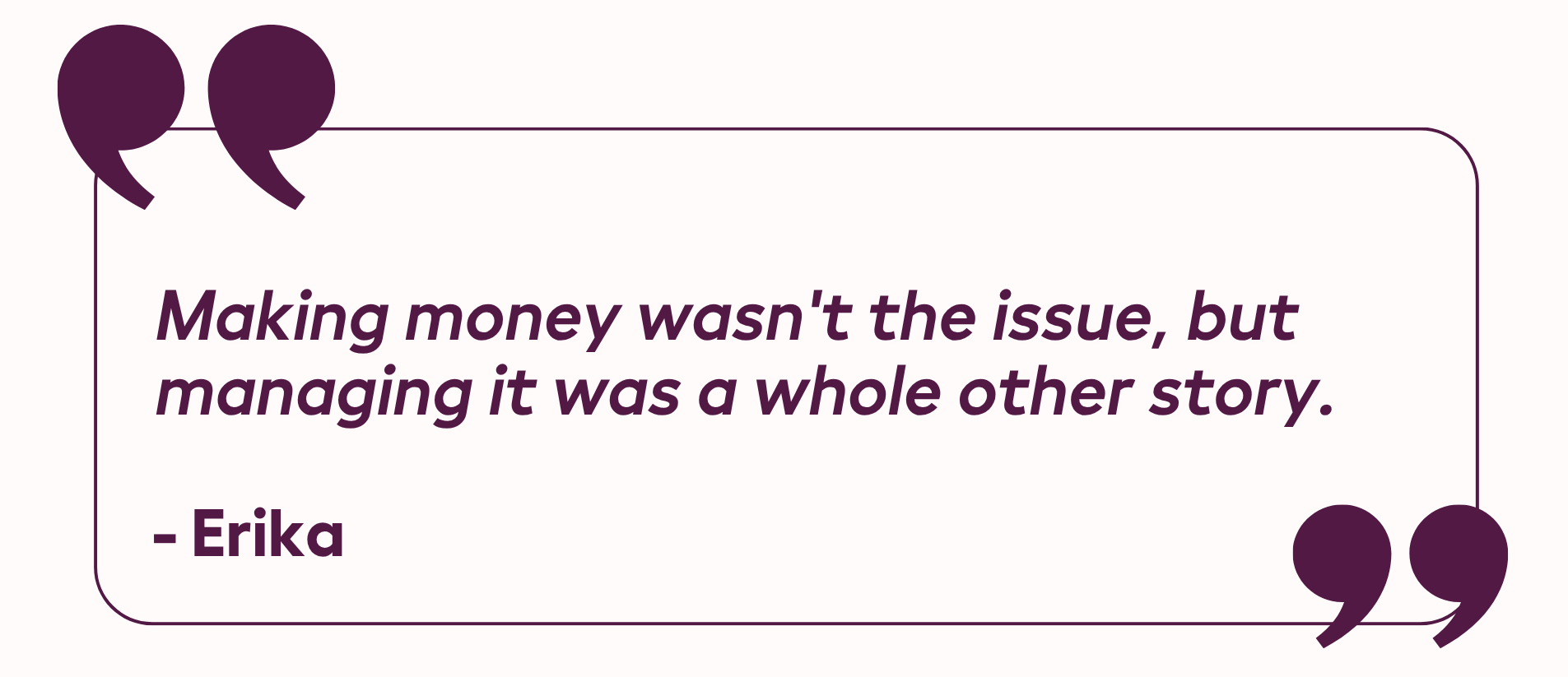The government shutdown could affect more than just federal workers. Between delayed mortgage closings, limited Social Security services, and economic data going dark, it's hard to know what you should actually worry about.
Here's what you need to know this week: which parts of the shutdown actually matter for your money, a simple tax strategy most investors miss before year-end, and how to catch up on retirement savings even if you feel behind. Plus, we'll show you how one person transformed her finances by finally understanding where their money was going.
Here’s what’s inside:
P.S. If you want to talk through your own finances, you can book a free 1-hour coaching call here ☎️
What the government shutdown means for your money
The federal government has shut down again… and depending on how long it lasts, it could affect more than just federal workers.
During a shutdown, the government stops all unfunded "nonessential" functions while essential services like air-traffic control and national security keep operating. Social Security checks and Medicare benefits continue flowing since they're considered mandatory spending.
About 750,000 federal workers could be furloughed each day of a shutdown, and they won't receive paychecks until the shutdown ends (though they'll get back pay retroactively). Government contractors, however, historically don't receive back pay at all.

What this means for your money:
💰 Social Security payments continue, but services are limited: If you rely on Social Security, SSDI, or SSI, your payment will arrive on time. But if you need a proof of income letter for an apartment application or loan, or need to fix an error on your earnings record, those services are on pause.
💰 Buying a house? Check your flood zone: If your mortgage requires federal flood insurance (common in coastal and flood-prone areas), your closing will be delayed until the shutdown ends. If you're in the process now, talk to your lender immediately.
💰 Traveling soon? Build in (a possibly long) buffer time: National parks are closed, and airport security lines could be longer if TSA agents call out. If you have upcoming travel plans, arrive extra early and have backup options ready.
💰 On Medicare? Expect longer hold times: If you need to call Medicare with questions about your coverage or claims, wait times will be longer with some agency workers furloughed. Providers might also see payment delays.
💰 Applying for financial aid?: Federal student aid and FAFSA processing continue, but if you need help from the Education Department with questions or issues, there's no one available to assist you.
💰 Public health tracking slows down: CDC disease surveillance for illnesses like Covid and flu could be disrupted, and state grants for vaccine programs and chronic disease prevention are affected. If there's an outbreak, we might not catch it as quickly.
The bottom line: If the shutdown lasts less than two weeks, the impact on household finances should be minimal. But the negative effects mount as weeks pass, especially for federal workers and contractors without emergency savings.
Anxious about navigating your finances during uncertain times? We can help you build a financial plan that holds up no matter what's happening around you. Book a free 1-hour coaching call here.
This move could save you thousands in stock taxes
If you're thinking about selling investments before year-end, there's a tax strategy most people miss (and it could save you thousands).
When you've bought the same stock multiple times at different prices, you can choose which shares to sell. Selling shares you bought recently (at a higher price) means less profit to tax than selling shares you bought years ago (at a lower price).
Most brokers automatically sell your oldest shares first, which often means a bigger tax bill. But you can change this setting to "specific identification" and pick which shares to sell each time.

What to do: Log into your brokerage account and search for "cost basis method" in settings. Switch from "First In, First Out" to "Specific Identification." Then when you sell, you can choose the shares that minimize your taxes.
This matters most if you've been buying the same stocks or funds regularly over time (like through automatic investments or dividend reinvestment).
Behind on retirement savings? Here’s how to catch up
More than half of Americans over 50 worry they won't have enough money in retirement. If that's you, you're definitely not alone. It's not too late to make meaningful progress.
If you're 50 or older, you're eligible to make catch-up contributions: an additional $1,000 yearly to IRAs and $7,500 yearly to 401(k)s or other workplace plans. Starting in 2025, those ages 60-63 can contribute an extra $11,250 to workplace accounts, bringing their total allowable contribution to $34,750.

What this means for your retirement plan:
💜 Max out your employer match first: An employer match is essentially free money. If your employer matches contributions dollar-for-dollar up to 5% of your salary, you could be saving 10% by contributing just 5%.
💜 Move cash to high-yield savings: Top high-yield savings accounts currently earn up to 4.5% APY compared to 0.01% at major banks. A $10,000 deposit left for five years would grow to $12,518 at 4% versus just $10,005 at 0.1%.
💜 Eliminate high-interest debt: Every dollar going to credit card interest is a dollar that can't grow for retirement. Tackle your highest-interest debt first to free up more money for saving.
💜 Consider delaying retirement: For each month you delay claiming Social Security between ages 62 and 70, your benefit amount increases and adds a bigger cushion to your retirement savings.
💜 Automate your savings: Set up automatic transfers to retirement accounts so you're consistently saving without having to think about it.
Worried you're not on track for retirement? We'll help you create a realistic plan to get you where you need to be, no matter your age or current savings. Book a free 1-hour coaching call here.oo late
Stuck in the earn-spend-debt cycle?
Ever feel like you're working hard but have nothing to show for it? You pay off debt, then rack it back up. You want to save, but somehow the money disappears. You're stressed about finances but don't know where to start.
That was this millennial’s reality when she was 27. As an esthetician running her own business, she was earning decent income but spending $5,000 a month with no emergency fund, cycling through credit card debt, and feeling constantly overwhelmed.
Erika’s breakthrough came when she discovered where her money was actually going: $1,400 monthly on eating out and shopping, plus forgotten subscriptions adding up in the background. Once she could see the patterns, she could change them.
Her results:
✅ Cut monthly expenses from $5,000 to $3,000
✅ Built her first-ever $20,000 emergency fund
✅ Saved $4,500 for a car down payment
✅ Paid off $5,000 in credit card debt and taxes

The lesson: You don't need a six-figure salary to get financially stable. You need visibility into where your money goes and a system that works with your life, not against it. Once you notice your patterns, that’s only when you can change them. You can read Erika’s full story here.
If you're tired of the earn-spend-debt cycle, you can book a free 1-hour coaching call here to create a plan that actually sticks.
Worth the Click This Week
🎓 Top 10 cities for new grads: Recent college graduates are flocking to NYC, San Francisco-Bay Area, and Los Angeles, with job opportunities being the major factor. Dallas-Fort Worth made the top 10 for the first time due to a surge in corporate relocations. See the full list »
💳 How much credit card debt is too much? The general rule of thumb is that you shouldn't spend more than 10% of your take-home income on credit card debt. Anything over 30% credit utilization will decrease your credit score. Learn the warning signs »
📊 FICO shakes up pricing model: The creator of the FICO score unveiled a new pricing model that will allow mortgage lenders to bypass credit bureaus for credit scores, potentially cutting costs by up to 50% for lenders—though credit bureaus are pushing back on the change. Get the details »
📚 Student loan borrowing is stabilizing: The average 2024 graduate borrowed $29,890—just $560 more than a decade ago. Fewer students are borrowing at all (56% in 2024 vs. 62% in 2020). But the affordability gap still hits low-income students hardest. See the data »
